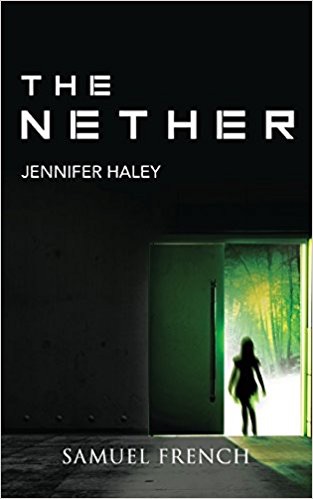The Nether: A Play
by Jennifer Haley
I’ve been interested of late in some moral questions raised by immersive fictions. For example, in Hamlet on the Star Trek holodeck, can one marry Ophelia? Can Holodeck Ophelia possibly give her consent?
Haley’s 2013 play, The Nether, explores an older vision of immersive fiction. She imagines a world in which Second Life has become a widespread escape from ecological and spiritual disaster, and place to which damaged people retreat for solace or to indulge their darker fantasies. It’s an AOL chat room gone mad. Yet, after all, it’s all just imaginary. No one is harmed, everyone has chosen to be where they are. The blood isn’t real, and the tears — well, what do tears signify in a construct?
It’s an intriguing inquisitorial drama, expertly propelled by the propulsive force of interrogation. It also does a superb job of handling a problem that drove me up the wall in Those Trojan Girls: how do we approach a story in which unspeakable things may happen to children? We could choose not to imagine such things, to be sure, but that’s untrue — and it betrays all those on whom such harms are, in fact, inflicted.
To some extent, Haley’s problem is Plato’s: since fiction is a lie, what is to prevent us from simply telling ourselves stories that make us feel good? Might those stories keep us from actually doing things that are necessary if we are to make a better world? I’m more concerned, I think, with our impact on the imagined world: does acting badly in a story make you a bad person? Sometimes, I think, it might.
